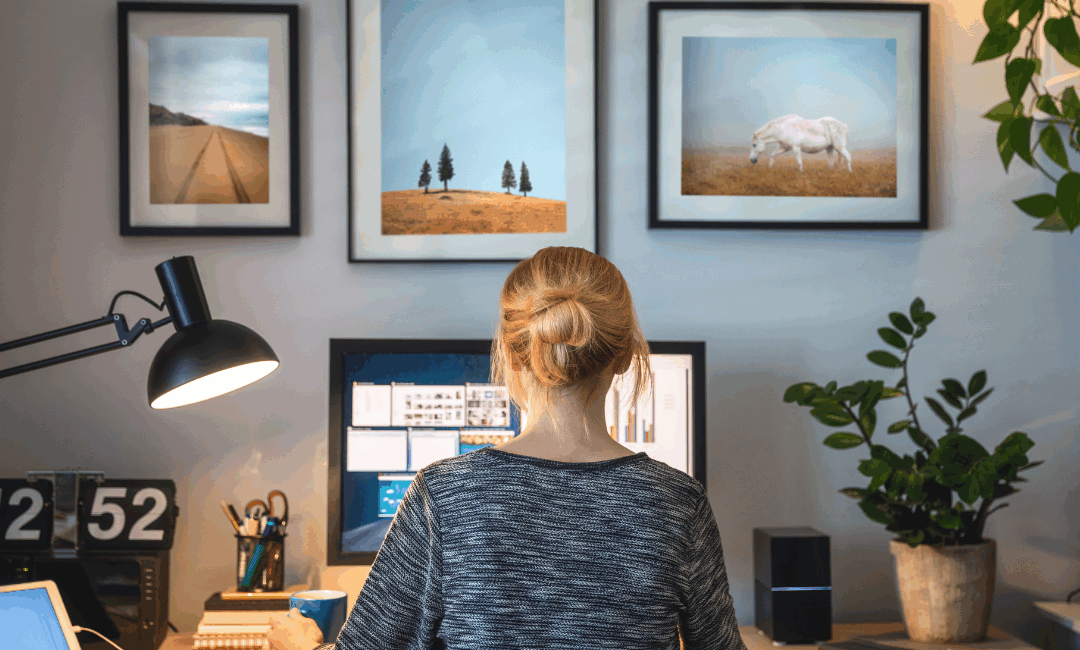Your eyes are tired from staring at the screen. Your shoulders are tight. Your brain feels… foggy.
And yet, you tell yourself to “push through” because there’s so much to get done. Here’s the thing: pushing through without rest isn’t a sign of dedication—it’s a fast track to burnout.
At BHSI, we talk a lot about the importance of taking care of your mental health at work—and one of the simplest tools is also the most overlooked: the micro-break.
Even just five minutes of intentional rest can help you reset your focus, regulate stress, and protect your emotional well-being. Let’s talk about why those small pauses matter, and how you can use them to take better care of yourself.
What to Do When Mental Health Affects Work?
When your mental health at work starts to slip, it can feel overwhelming. You might notice you’re more irritable, less focused, or emotionally drained before the day even starts.
Here’s where micro-breaks can help:
- Step away from the desk. A short walk, even just around the office, can help clear your mind.
- Breathe with intention. Try inhaling for four counts, holding for four, exhaling for four.
- Change your environment. Stand by a window or go outside for a few minutes to shift your sensory input.
- Do a body scan. Notice where you’re holding tension and release it.
If your mental health at work feels consistently impacted, it’s not a sign of weakness—it’s a signal to slow down and take stock. Micro-breaks are a great first step, but they’re even more effective when paired with long-term mental health support.
Is It Okay to Take Time Off Work for Mental Health?
Absolutely. Mental health at work is just as important as physical health. You wouldn’t hesitate to rest if you had the flu—your mind deserves the same care.
Taking a mental health day can help you:
- Break the cycle of overwhelm before it becomes burnout.
- Reassess your workload and priorities.
- Return to work more focused and energised.
Remember, rest isn’t indulgent—it’s necessary. And in many workplaces, mental health days are covered just like sick leave. Check your company’s policy, and if it’s available to you, use it without guilt.
Can I Leave Work Early for Mental Health?
Yes—if your mental health at work is suffering to the point that you can’t function effectively, leaving early can be a responsible choice. It’s better to take an afternoon to recharge than to push through and risk mistakes, conflict, or deeper exhaustion.
Leaving early doesn’t have to mean you’re “failing” at your job—it can mean you’re protecting your long-term capacity to do it well. Just be transparent where possible, and frame it as part of your commitment to doing your work sustainably.
If leaving early isn’t an option, even a five-minute micro-break can help you recalibrate enough to finish the day with more ease.
Should I Tell My Employer I Have Mental Health Issues?
This is a deeply personal decision. Mental health at work conversations depend on your comfort level, your workplace culture, and your specific situation.
Here are some considerations:
- Safety first. If you feel your employer is supportive and values wellbeing, sharing can open doors to accommodations and understanding.
- Privacy is your right. You don’t have to disclose specific diagnoses—you can simply say you’re managing a health concern.
- Support resources. Some workplaces offer Employee Assistance Programmes (EAPs) or wellness initiatives that you can access confidentially.
Whether or not you choose to share, prioritising your mental health at work is essential. You can take micro-breaks, adjust your workload where possible, and seek outside support even without formal disclosure.
Why Micro-Breaks Matter
It’s easy to think that only long holidays or weekends can recharge us. But research shows that even short pauses throughout the day help regulate stress hormones, improve focus, and boost creativity.
When you take a micro-break, you:
- Give your brain a moment to rest and reset.
- Allow your body to release built-up tension.
- Create space to respond instead of react in stressful situations.
And the best part? You can take micro-breaks anywhere, anytime—no permission slip needed.
Final Thoughts: Protecting Your Mental Health at Work, One Break at a Time
Your productivity doesn’t define your worth. Your focus doesn’t have to be endless to be valuable.
And your mental health at work deserves to be protected in the small moments, not just the big ones.
Micro-breaks are a powerful reminder that you don’t have to wait for burnout to hit before you take care of yourself.
Five minutes might not seem like much—but over time, those small investments add up to a healthier, more sustainable you.
At BHSI, we believe that caring for your mental health at work is about more than just surviving the day—it’s about creating a life where you can show up fully, in work and in everything else that matters.

